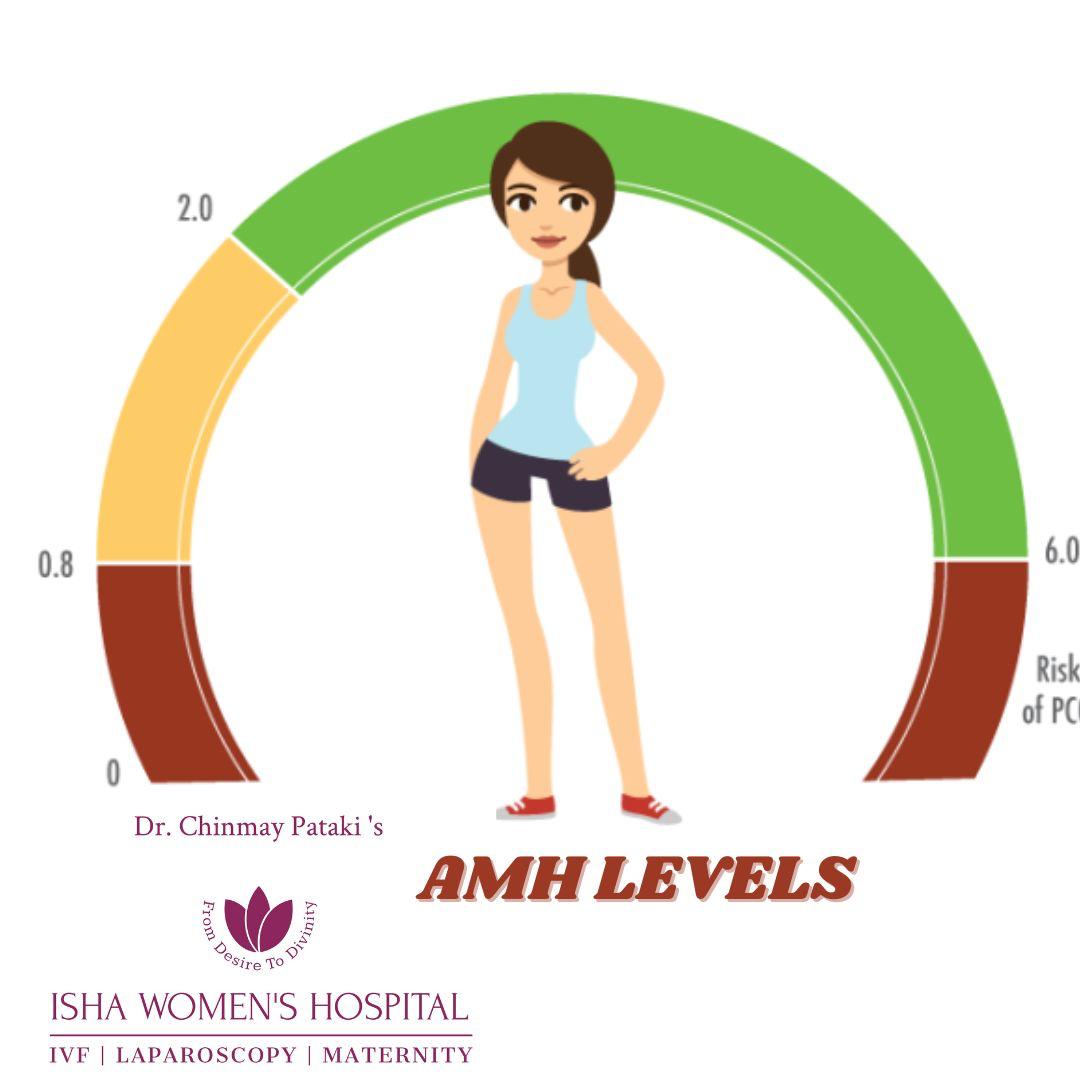AMH Levels and Fertility: What You Need to Know

AMH testing is a simple blood test that can be taken at any time in your menstrual cycle. It’s a helpful tool, especially for women who are starting their fertility journey, thinking of delaying pregnancy or experiencing fertility challenges.
Why Knowing Your AMH Level Matters?
For example:
High AMH may indicate PCOS (Polycystic Ovary Syndrome), which requires special attention when planning treatments
Whereas, Low AMH indicates poor ovarian reserve which requires immediate attention of the fertility consultant if planning for pregnancy.
Understanding AMH Levels:
- Low AMH: A low AMH level suggests a reduced number of eggs. This is often seen as women age, but it can also be the case for younger women. While it doesn’t mean pregnancy is impossible, it can make conception harder without assistance.
- Normal AMH: A normal AMH level is a good sign that your egg count is suitable for your age, which generally means a good chance for fertility treatments to work.
- High AMH: A high AMH level is often seen in women with PCOS. Even though these women have many follicles, their eggs don’t always develop and release properly. With Dr. Pataki’s expertise, we can create a plan to help manage PCOS and improve your chances of conceiving.
Fertility Treatment
Fertility Preservation
PCOS
At Isha Women’s Hospital, under the guidance of the best-renowned gynaecologist Dr Chinmay Pataki and his dedicated team, you can gain a deeper understanding of your AMH levels and develop a personalized plan to achieve your fertility goals.
Frequently Asked Questions (FAQs)
Answer: AMH (Anti-Müllerian Hormone) is a hormone produced by the ovarian follicles. It reflects a woman’s ovarian reserve—the number of eggs remaining in her ovaries. AMH is a key marker used to evaluate fertility potential and guide decisions around fertility treatments like IVF.
2. How is AMH measured and what do the levels mean?
Answer: AMH is measured through a simple blood test that can be done on any day of your menstrual cycle.
- High AMH levels may indicate a good egg reserve or PCOS
- Low AMH levels suggest a reduced egg supply, commonly seen with age or early ovarian decline
It helps fertility specialists assess how well your ovaries may respond to stimulation.
3. Does a low AMH level mean I can’t get pregnant?
Answer: Not necessarily. Low AMH indicates a lower quantity of eggs, but it doesn’t speak directly to egg quality. Many women with low AMH conceive naturally or with the help of fertility treatments. Early evaluation and personalized treatment improve success rates.
4. How does AMH help in planning IVF or fertility preservation?
Answer: AMH helps doctors:
- Predict ovarian response to fertility medications
- Customize IVF protocols for better outcomes
- Decide the right time for egg or embryo freezing
- Guide fertility preservation in women with medical conditions (like cancer) or those planning delayed motherhood
5. Should I get my AMH tested even if I’m not trying to conceive yet?
Answer: Yes, AMH testing is helpful for women who:
- Want to assess their reproductive health early
- Are considering delaying pregnancy
- Have irregular cycles or PCOS
- Are exploring egg freezing or fertility preservation
At Isha Women’s Hospital, we offer AMH testing as part of our preconception and fertility check-up packages.
Conclusion
Contact us today to discover more about your AMH levels at Isha Women’s Hospital and how we can assist you on your path to parenthood. Dr. Chinmay Pataki and our dedicated team are here to support you every step of the way!
